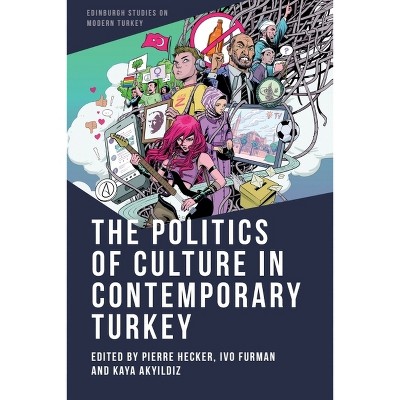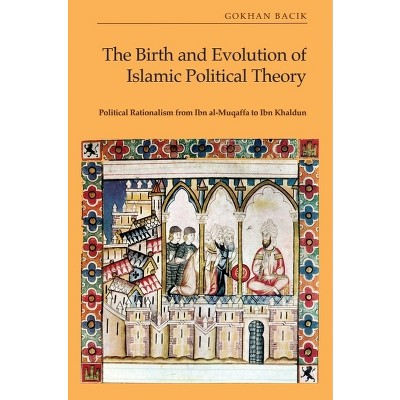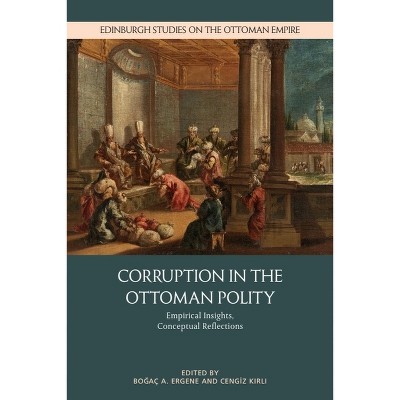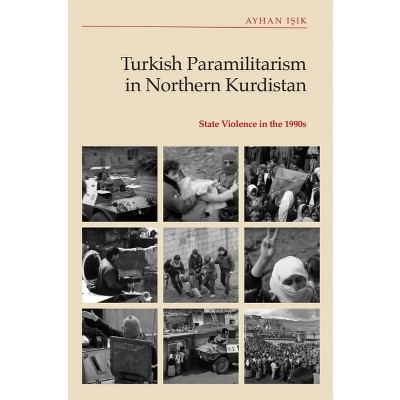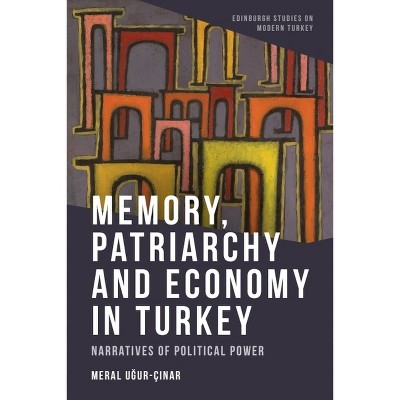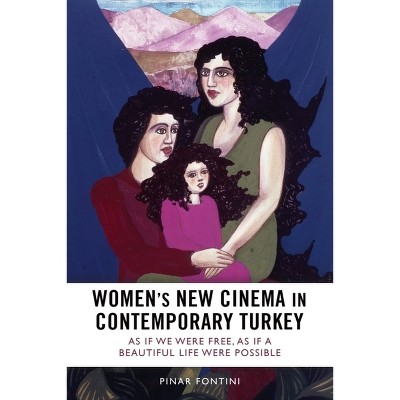About this item
Highlights
- In Age of Rogues, leading scholars engage with themes of historical and cultural legacies, contentious interactions within imperial regimes, and the biographical trajectory of men and women who challenged the political status quo of their time.
- About the Author: Ramazan Hakkı Oztan is Assistant Professor of History at the Atatürk Institute for Modern Turkish History at Boğaziçi University, Istanbul.
- 424 Pages
- History, Middle East
Description
About the Book
In Age of Rogues, leading scholars engage with themes of historical and cultural legacies, contentious interactions within imperial regimes, and the biographical trajectory of men and women who challenged the political status quo of their time.
Book Synopsis
In Age of Rogues, leading scholars engage with themes of historical and cultural legacies, contentious interactions within imperial regimes, and the biographical trajectory of men and women who challenged the political status quo of their time. Rebels, revolutionaries and racketeers played central roles in the violent process of imperial disintegration as it unfolded in the frontiers of the Ottoman, Habsburg, Romanov and Qajar empires. This is a history of these transgressive actors from the late-19th century to the interwar years. This time was marked by similar, if not shared, revolutionary experiences and repertoires of contention across the connected geography of the Balkans, the Middle East and the Caucasus.
From the Back Cover
'The scholarship is of the highest quality. A fine book.' Stephanie Cronin, St Antony's College, University of Oxford 'A rich and original work dedicated to one of the most compelling issues within late imperial history.' Ryan Gingeras, Naval Postgraduate School 'A crucial addition not just to the conversation about how these empires disintegrated but also to the analysis of the fractured and violent nation-states that replaced them.' Laura Robson, Penn State University 'A highly readable collection of cutting-edge research on agents of change.' Isa Blumi, Stockholm University A study of the frontier cultures of revolution that shaped the making of the modern Middle East Rebels, revolutionaries and racketeers played central roles in the violent process of imperial disintegration as it unfolded in the frontiers of the Ottoman, Habsburg, Romanov and Qajar empires. This is a history of these transgressive actors from the late 19th century to the interwar years, a time marked by similar, if-not-shared, revolutionary experiences and repertoires of contention across the connected geography of the Balkans, the Middle East and the Caucasus. Contributions by leading scholars engage with themes of historical and cultural legacies, contentious interactions within imperial regimes, and the biographical trajectory of men and women who challenged the political status quo of their time. Ramazan Hakkı Öztan teaches history at the Atatürk Institute for Modern Turkish History at Boğaziçi University, Istanbul. Alp Yenen is Assistant Professor of Modern Turkish History and Culture at the Institute for Area Studies at Leiden University. Front cover: Die Wölfe (Balkankrieg) [The Wolves (Balkan War), Franz Marc, 1913. Image courtesy of Wikimedia Commons/Charles Clifton, James G. Forsyth, and Charles W. Goodyear Funds 1951 Back cover: Stoyko Bakalov cheta, 1905, unknown photographer, image courtesy of Wikimedia Commons Key Features removed to make space: Key Features - Uses a novel conceptual framework that charts the rise of transgressive politics in the frontiers of empires - Includes a variety of biographical approaches to the key disruptive figures during the crisis of imperial and post-imperial regimes in the region - Represents a connected geography of imperial collapse and nation-state formation in 12 case study chapters - Engages with scholarship on intercommunal violence, revolutionary politics, and subaltern agencyReview Quotes
Age of Rogues is a rich and original work dedicated to one of the most compelling issues within late imperial history: how did outlaws and rebels reflect and influence the development of modern states and society? Through a rich of array of case studies spanning the Caucasus, Balkans and Middle East, this volume offers important insights into how would-be revolutionaries and common brigands helped shape the nature of borders, governments, and provincial communities between the nineteenth and twentieth centuries. Each chapter of this work exemplifies the most current research into the global and local factors that gave birth to this period of violence and upheaval. As a study dedicated to a bottom-up understanding of the late Ottoman and Russian empires, Age of Rogues clearly sets new benchmarks for students and scholars alike.-- "Ryan Gingeras, Professor in the Department of National Security Affairs, Naval Postgraduate School"
In a stunning collection, the editors Öztan and Yenen not only expertly steer an otherwise disparate set of authors writing on seemingly very different themes, historic trajectories, and locales, they also masterfully conjoin this volume to serve as one of our generation's best exemplars of scholarship on the late Ottoman Empire. A highly readable collection of cutting-edge research on agents of change along the fringes of both the Ottoman and larger modern world, this book must be considered an addition to the library of all serious scholars, and a candidate for their graduate seminars. I most enthusiastically recommend this invaluable new addition to the scholarship.-- "Isa Blumi, Professor of Turkish and Middle Eastern Studies, Stockholm University"
Ramazan Hakkı Öztan and Alp Yenen have assembled a wonderful gallery of rebels, revolutionaries and racketeers--extraordinary characters located at the margins of imperial power. The stories presented here, of colourful personalities operating in dramatic contexts, make fascinating reading while the scholarship is of the highest quality. A fine book.-- "Stephanie Cronin, St Antony's College, University of Oxford"
This fascinating volume brings together a wide range of case studies of ground-level political violence in the frontier zones of the Balkans, the Caucasus, and the Middle East in an era of imperial disintegration. The collection's detailed exploration of the multifarious figures - brought together here under the label of 'rogues' - engaged in an often-violent politics of transgression offers a new and compelling case for the importance of apparently marginal actors, acting outside the state, to the process of imperial disintegration. Further, it traces how such 'rogues' gradually made their way into the structures of nationalism emerging before and after the First World War and eventually came to constitute central figures in institutions of postwar governance, installing their often-anarchic sense of political strategy into structures of statehood and nationalism from Macedonia to Iran. In its timely analysis of the politics of transgression, then, this volume is a crucial addition not just to the conversation about how these empires disintegrated but also to the analysis of the fractured and violent nation-states that replaced them.-- "Laura Robson, Oliver-McCourtney Professor of History, The Pennsylvania State University"
About the Author
Ramazan Hakkı Oztan is Assistant Professor of History at the Atatürk Institute for Modern Turkish History at Boğaziçi University, Istanbul.
Alp Yenen is Assistant Professor of Modern Turkish History and Culture at the Institute for Area Studies at Leiden University.







